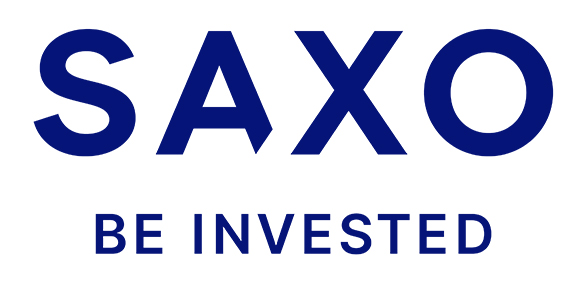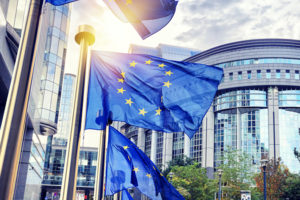How to invest in football clubs? [Guide]
Football has undergone a tremendous change over the past two decades. Football clubs have become better organized and have larger budgets. The increase in revenues is the result of higher amounts paid by advertisers. An example is Adidas, which signed an advertising contract with Real Madrid in 2019. Under the Real Madrid contract will receive € 120 million every year, plus any bonuses. Back in 2013, Adidas paid Real "only" € 40 million for a similar contract.
Football has become one of the important advertising markets. The former "holy" shirts of clubs such as Athletic Bilbao and Barcelona have now become portable billboards. Increasingly, large football clubs visit during the preparatory period Japan, China or the United States. This is not due to preparatory plans but sponsorship agreements. The current footballers also "earn extra money" from advertising contracts with well-known brands. An example would be Robert Lewandowskiwhich advertises, among others Huawei or Head & Shoulders.
The increase in the advertising value of football translates into an increase in the value of broadcasting rights. The most expensive television laws apply to the English Premier League. In 2018, Sky and BT won the right to broadcast matches of the highest league. The 3-year contract was £ 4,5bn.
The increase in the value of media rights also applies to more peripheral leagues. Rights to the Polish Premier League for the 2019/2020 and 2020/2021 seasons were sold for PLN 500 million (PLN 250 million for the season). The value of the contract is so far significantly different from the league level. The new contract placed Ekstraklasa 8th in Europe in terms of contract value. On the other hand, the UEFA ranking (measuring the strength of European leagues based on performances in European cups) classifies Poland only in 30th place (between Belarus and Slovenia). It is worth adding that in the years 2008-2011 Canal + paid slightly over PLN 133 million for the season.
Costs, fans, regulations
As you can see, in each subsequent year, football clubs try to increase their revenues. In the last year, the closure of the stadiums hindered the closure of the clubs' budgets (match day revenues).
But even if the impact of COVID-19 on the soccer industry is subtracted, clubs are still under constant cost pressure. This is because today's footballers want to earn more and more. This applies to both the contract itself and the bonus for signing the contract. Also Player managers try to convince players to change clubs as often as possible by collecting commissions.
Another problem is the expectations of fans who want victories and trophies. This results in an endless "arms race" between the clubs. The millions in transfers spend a lot on the budgets of clubs, while at the same time being tightened by the rules "Financial fair play"which were aimed at limiting the transfer attempts of clubs with rich sponsors (often from Arab countries).
Fan pressure on short-term results in many cases gets in the way of calm team building and long-term planning. A few weaker matches often make the management try to "remedy the crisis" by changing the coach. This causes another "revision of plans" and entails additional costs (termination of the contract).
Inter-club division of labor
As a result of the capital flow, marketing potential and strength of individual leagues, a division into clubs of different speeds was developed. The clubs with the greatest tradition in the international arena (Real Madrid, Barcelona, Manchester United, Juventus etc.) generate the highest revenues. These clubs attract the biggest football stars, the richest sponsors and attract the most fans "with thick wallets". It is these clubs that spend tens or even hundreds of millions of euros to improve the quality of the team. These teams have such prestige and money that they can "draw" the greatest talents from weaker clubs.
The second group are the so-called "Players' suppliers". These are clubs that act as serial suppliers of new "football talent" to wealthier clubs. They themselves do not have the potential to buy the best players available on the market. However, thanks to their scouting network, they can pay a few - several million euros for a promising footballer. Such clubs “agree” with the fact that the best players will leave the club after a good season. The lack of stabilization of the squad does not allow such clubs to create a "golden generation" that will dominate world football. Examples of such clubs are Ajax, Porto and Anderlecht.
There are also aspiring clubs, which are much "poorer" versions of clubs such as Ajax and Porto. They are unable to keep the best players and at the same time have not developed a "big" brand to sell their players for tens of millions of euros. The most sold players are players worth several million euros. Transfer proceeds are not spent on improving the quality of the team, but on developing the academy or filling a hole in the budget. The lack of improvement in the quality of the teams results in the lack of promotion to the Champions League, which cuts the clubs off from significant influence from UEFA. Examples of such aspiring teams include Legia Warsaw or Lech Poznań.
How clubs obtain additional capital
It happens that football clubs need additional capital to develop or improve liquidity. One way to raise capital is to either issue bonds, use equity funds, crowdfunding or stock exchange debut.
The issue of bonds is an escape to the front, in which the club's managers hope to improve the financial situation (sports success, sale of players), which will allow the debt to be repaid with interest. Another idea is to take advantage of the offer of funds that either acquire shares in the club through a private share issue or grant loans (eg against television rights). An interesting example is social investing. In Poland, it was used by Wisła Kraków, which collected PLN 2019 million in 4 through share issues. From similar actions before, incl. Spanish clubs like Real Oviedo and Recreativo Huelva.
Stock exchange clubs
Another way to obtain additional capital is to issue shares and go public on the stock exchange. In such a situation, the company becomes a public entity that must publish financial statements and meet other requirements set by regulators. The advantage of such a solution is the possibility of using a wider group of investors (both individual and institutional). Many well-known clubs use this method of financing. Among them are Manchester United, Juventus Turin and Ajax Amsterdam. However, this source of financing is not only used by the largest clubs in the world. An example is GKS Katowice or Ruch Chorzów, which debuted on New Connect in 2011 and 2008, respectively.
Debut on the stock exchange allows you to "monetize" the popularity of a given club. For this reason, this solution is most often used by clubs with a recognizable brand (international, national or regional). Unfortunately, remember that even a club with great traditions can be a poor investment idea. History can be given as an example Glasgow Rangerswhich despite winning as many as 54 championship titles filed for bankruptcy in 2012. Financial success is determined, among others, by factors such as management skills, sports success and… happiness.
The strongest leagues in the world are located in Europe, so it is not surprising that the most listed clubs on the stock exchange are from this region. One of the first clubs listed on the stock exchange was Tottenham, which debuted on the stock exchange in 1983. More clubs joined in the following years. Mainly from countries such as Denmark, the Netherlands, Italy, Turkey, Portugal and France. Due to the large representation of European clubs on stock exchanges in Europe, the Stoxx Europe Football index was created in 2002. The index ceased to be quoted until August 2020.
Below is a subjective list of the 5 clubs listed on the stock exchange:
AFC Ajax N.V.
It is a Dutch team famous for its football academy. He raised players such as Johan Cruyff, Marco van Basten, Dennis Bergkamp, Frenkie de Jong and Patrick Kluivert. It is also the most successful club in the Netherlands with 34 league titles under their belt. It is also a 4-time winner of the Champions League (before the 1992 European Cup). The company's current capitalization is € 287m.
Olympique Lyon
It is a French football club that celebrated its greatest success between 2001 and 2007. During this period, Olympique Lyonnais won seven national championships in a row, a historic record in the French league (Ligue 1). The founder of the club's power at that time was the president of Jean-Michel Aulas. Despite still remaining at the top of the league, the club is not in a position to compete financially with Paris Saint-Germain. The company's current capitalization is € 138m.
Manchester United
"Red Devils" is one of the most popular football clubs in the world. The club has been listed on the New York Stock Exchange since 2012. Manchester United won 20 England championships which is a league record. The club's greatest successes were when the team manager was Sir Alex Fergusson. At that time, the Red Devils won, among others 13 league titles, two Champions League and 5 FA Cups. The current capitalization of the company is $ 2,6 billion.
Borussia Dortmund
It is a club that Polish fans associate most with the "Polish trio" of players such as Błaszczykowski, Lewandowski and Piszczek. He is also an 8-time winner of the German Championship and a 4-time winner of the German Cup. The club's greatest success is winning the Champions League in the 1996/1997 season and the Cup Winners' Cup in the 1965/1966 season. The company's current capitalization is € 481m.
Juventus Turin
The "Old Lady" is the most successful Italian club. It is part of the "empire of Agnielli", which includes, inter alia, Fiat or Exor. He is a 36-time winner of the Italian Championship and a two-time winner of the Champions League (formerly known as the European Cup). The club was involved in "Calciopoli" and was penally relegated to the lower league on corruption charges. The club's legends include: Alessandro del Piero, Pavel Nedved, Gianluigi Buffon, Michael Platini and Antonio Conte. The current capitalization of the company is € 1m.
Where to invest in stocks
Below is a list of offers from selected brokers offering both shares and CFD per share from all over the world.
For example on XTB Today, we can find over 3500 equity instruments and 400 ETFs, a Saxo Bank over 19 companies and 000 ETF funds.
| Broker |  |
 |
 |
| End | Poland | Denmark | Cyprus * |
| Number of exchanges on offer | 16 exchanges | 37 exchanges | 24 exchanges |
| Number of shares in the offer | approx. 3500 - shares circa 2000 - CFDs on shares |
19 - shares 8 - CFDs on shares |
approx. 3 - CFD on shares |
| The amount of ETF on offer | approx. 400 - ETF approx. 170 - CFD on ETF |
3000 - ETF 675 - CFD on ETF |
approx. 100 - CFD on ETF |
| Commission | 0% commission up to EUR 100 turnover / month | according to the price list | Spread depends on the instrument |
| Min. Deposit | PLN 0 (recommended min. PLN 2000 or USD 500, EUR) |
0 PLN / 0 EUR / 0 USD | PLN 500 |
| Platform | xStation | SaxoTrader Pro Saxo Trader Go |
Plus500 platform |
* PLUS500 CY offer
CFDs are complex instruments and come with a high risk of losing money rapidly due to leverage. From 72% to 89% of retail investor accounts record monetary losses as a result of trading CFDs. Think about whether you understand how CFDs work and whether you can afford the high risk of losing your money.
Summation
Long-term investment in stocks of football clubs does not translate into above-average returns for shareholders. It is a very tough business with large capital expenditures (to train or buy a player and pay for the contract). Despite rising advertising and television rights revenues, players' prices and salaries are rising. As a result, the operating profits of football clubs are not as high as that of mature technology companies or producers of luxury clothing. On the other hand, clubs 'customers' are much more attached to the 'brand' than is the case with 'regular' brands. This gives a lot of room for fan monetization. Popularity among fans translates into higher sponsorship contracts. However, the most winners in this market are the players (and their managers), who receive very large earnings that could have been dreamed by players such as Maradona, Pele, Platini or Alfredo di Stefano.






















![Forex Club – Tax 9 – Settle tax on a foreign broker [Download the Application] Forex Club - Tax 9](https://forexclub.pl/wp-content/uploads/2024/02/Forex-Club-Podatek-9-184x120.jpg?v=1709046278)
![Trading View platform – solutions tailored to the needs of traders [Review] trading view review](https://forexclub.pl/wp-content/uploads/2024/03/trading-view-recenzja-184x120.jpg?v=1709558918)
![How to connect your FP Markets account to the Trading View platform [Guide] fp markets trading view](https://forexclub.pl/wp-content/uploads/2024/02/fp-markets-trading-view-184x120.jpg?v=1708677291)
![How to invest in ChatGPT and AI? Stocks and ETFs [Guide] how to invest in chatgpt and artificial intelligence](https://forexclub.pl/wp-content/uploads/2023/02/jak-inwestowac-w-chatgpt-i-sztuczna-inteligencje-184x120.jpg?v=1676364263)


![WeWork – the anatomy of the collapse of a company valued at $47 billion [WeWork, part II] wework bankruptcy story](https://forexclub.pl/wp-content/uploads/2024/04/wework-bankructwo-historia-184x120.jpg?v=1711729561)
![Adam Neumann – the man who screwed up Softbank [WeWork, part AND] adam neumann wework](https://forexclub.pl/wp-content/uploads/2024/04/adam-neumann-wework-184x120.jpg?v=1711728724)





![How to transfer shares to another brokerage office [Procedure description] how to transfer shares to another brokerage house](https://forexclub.pl/wp-content/uploads/2024/03/jak-przeniesc-akcje-do-innego-biura-maklerskiego-184x120.jpg?v=1709556924)

![The most common mistakes of a beginner trader - Mr Yogi [VIDEO] Scalping - The most common mistakes of a beginner trader - VIDEO](https://forexclub.pl/wp-content/uploads/2024/03/Scalping-Najczestsze-bledy-poczatkujacego-tradera-VIDEO-184x120.jpg?v=1711601376)
![Learning patience: No position is also a position - Mr Yogi [VIDEO] Scalping - Learning patience - No position is also a position - VIDEO](https://forexclub.pl/wp-content/uploads/2024/03/Scalping-Nauka-cierpliwosci-Brak-pozycji-to-tez-pozycja-VIDEO-184x120.jpg?v=1710999249)
![When to exit a position and how to minimize losses - Mr Yogi [VIDEO] Scalping - When to exit a position and how to minimize losses - VIDEO](https://forexclub.pl/wp-content/uploads/2024/03/Scalping-Kiedy-wyjsc-z-pozycji-i-jak-minimalizowac-straty-VIDEO-184x120.jpg?v=1710336731)


![How to invest in football clubs? [Guide] how to invest in football clubs](https://forexclub.pl/wp-content/uploads/2021/04/jak-inwestowac-w-kluby-pilkarskie.jpg?v=1618471561)

![How to invest in ChatGPT and AI? Stocks and ETFs [Guide] how to invest in chatgpt and artificial intelligence](https://forexclub.pl/wp-content/uploads/2023/02/jak-inwestowac-w-chatgpt-i-sztuczna-inteligencje-300x200.jpg?v=1676364263)

![How to invest in football clubs? [Guide] Qatar World Cup](https://forexclub.pl/wp-content/uploads/2022/11/mistrzostwa-swiata-katar-102x65.jpg?v=1668773710)
![How to invest in football clubs? [Guide] american consumer](https://forexclub.pl/wp-content/uploads/2022/11/amerykanski-konsument-102x65.jpg?v=1668867920)









